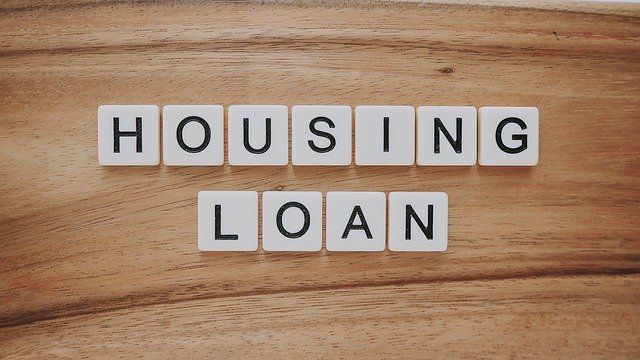Housing Grants in 2025: Programs, Eligibility, and Community Support Initiatives
In 2025, housing grants continue to play an important role in supporting affordable living and community development. These programs are typically offered through public agencies or non-profit initiatives to assist with home repairs, accessibility improvements, or first-time ownership. Understanding eligibility requirements and application processes can help individuals and families explore available options responsibly and within verified government frameworks.

Housing grants represent a crucial pathway to homeownership for millions of Americans who might otherwise struggle to secure adequate housing. These programs, funded through government initiatives and community partnerships, provide direct financial assistance without the burden of repayment that traditional loans require. As we move through 2025, housing grant programs have evolved to address changing market conditions and demographic needs.
Overview of Housing Grant Programs
Housing grant programs operate at multiple levels of government, from federal agencies like HUD to local housing authorities. The Federal Housing Administration (FHA) coordinates many national initiatives, while state housing finance agencies manage region-specific programs. These grants typically fall into several categories: first-time homebuyer assistance, down payment grants, closing cost assistance, and home rehabilitation funding.
Eligibility requirements vary significantly between programs but generally consider factors such as income limits, credit scores, and geographic location. Most programs target households earning between 50-120% of the area median income, ensuring assistance reaches working families who earn too much for traditional welfare programs but struggle with housing costs.
Types of Housing Assistance
Direct down payment assistance grants provide funds that homebuyers can apply toward their initial home purchase, often covering 3-5% of the purchase price. These grants may be forgivable over time, meaning recipients don’t need to repay them if they remain in the home for a specified period.
Rehabilitation grants help existing homeowners improve their properties, addressing safety issues, energy efficiency, or accessibility modifications. These programs particularly benefit elderly homeowners and those with disabilities who need to modify their homes but lack the financial resources.
Rental assistance grants, while not leading to homeownership, provide crucial housing stability through programs like Section 8 vouchers and emergency rental assistance. These programs help families maintain housing while they work toward eventual homeownership.
Government and Community Partnerships
Successful housing grant programs rely on collaboration between government agencies, nonprofit organizations, and private sector partners. Community Development Financial Institutions (CDFIs) play a vital role in delivering grants to underserved communities, combining federal funding with local knowledge and relationships.
State housing finance agencies leverage federal dollars with state resources, creating more comprehensive assistance packages. For example, many states combine federal HOME Investment Partnership Program funds with state-specific initiatives to provide larger grant amounts or serve more families.
Local housing authorities often partner with employers, hospitals, and universities to create workforce housing programs. These partnerships target essential workers like teachers, nurses, and first responders who serve the community but struggle with housing costs in expensive markets.
| Program Type | Provider | Grant Amount Range | Key Requirements |
|---|---|---|---|
| FHA First-Time Buyer | HUD/Local Lenders | $2,500-$15,000 | Income limits, credit score 580+ |
| USDA Rural Development | USDA | $5,000-$20,000 | Rural location, income 115% AMI |
| State Down Payment | State Housing Agencies | $3,000-$25,000 | First-time buyer, income varies |
| VA Grants | Department of Veterans Affairs | $2,000-$17,000 | Military service, disability rating |
| Local Housing Trust | Municipal Programs | $1,000-$50,000 | Local residency, income limits |
Grant amounts and eligibility requirements mentioned in this article are based on the latest available information but may change over time. Independent research is advised before making financial decisions.
Trends and Policy Focus for 2025
Housing policy in 2025 emphasizes addressing the racial homeownership gap and climate resilience. New grant programs specifically target historically disadvantaged communities, providing enhanced assistance amounts and reduced qualification barriers. These initiatives recognize that traditional lending practices have created persistent disparities in homeownership rates.
Climate-focused grants are becoming increasingly important, with programs offering additional funding for energy-efficient homes or properties in areas with lower climate risk. Some states now provide grant bonuses for homes that meet specific environmental standards or include renewable energy systems.
Technology integration has streamlined the application process for many grant programs. Online portals now allow applicants to submit documentation electronically and track their application status in real-time. This modernization has reduced processing times and improved accessibility for tech-savvy younger applicants.
The growing recognition of housing as a social determinant of health has led to increased funding for grants that address both housing and health outcomes. Programs now consider factors like proximity to healthcare, walkability, and air quality when prioritizing applications.
Housing grants continue to evolve as policymakers recognize their effectiveness in promoting homeownership and community stability. While funding levels and specific program details change annually based on federal and state budget allocations, the fundamental commitment to helping families achieve housing security remains strong. Prospective applicants should research current programs in their area and work with approved housing counselors to navigate the application process effectively.




